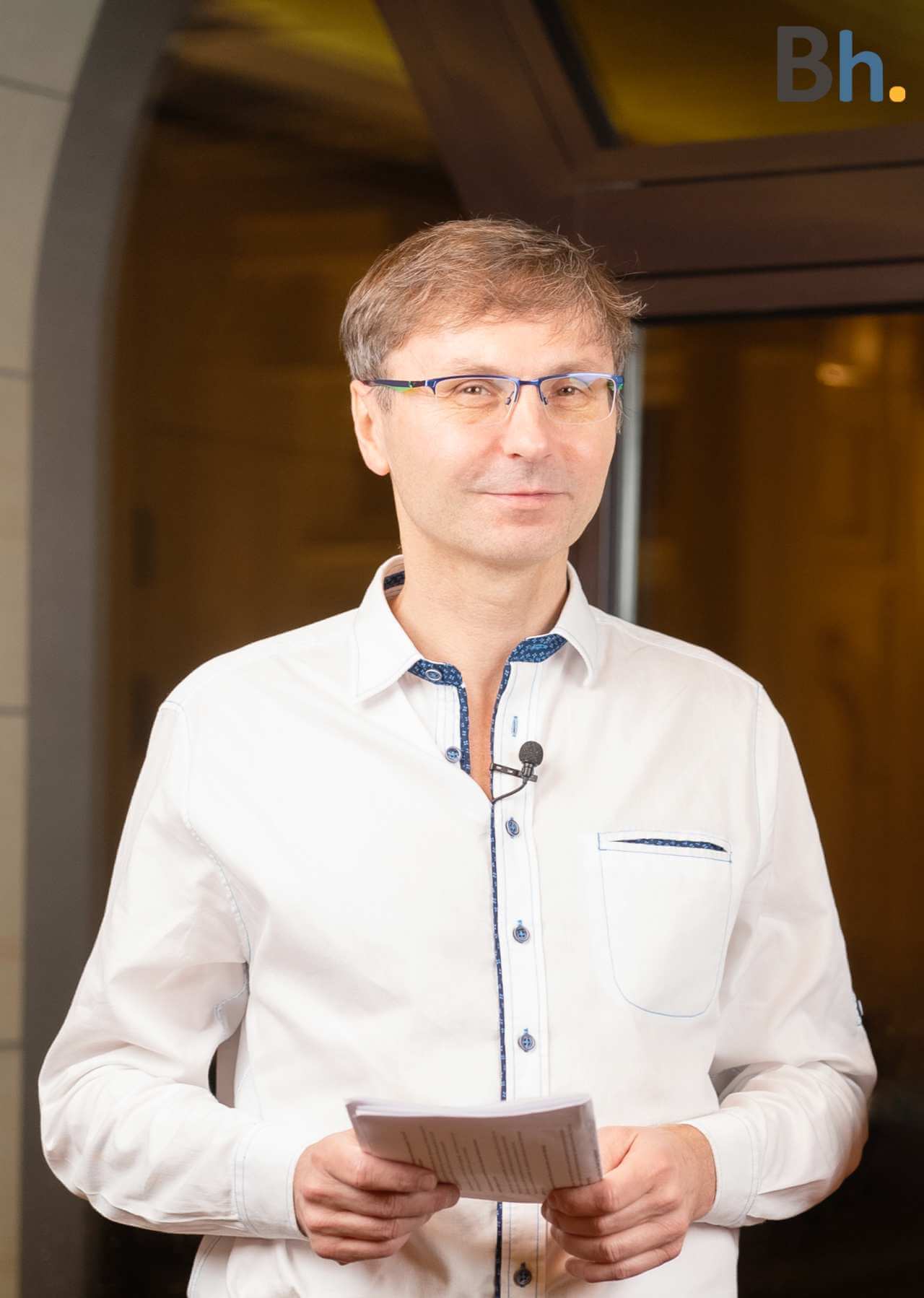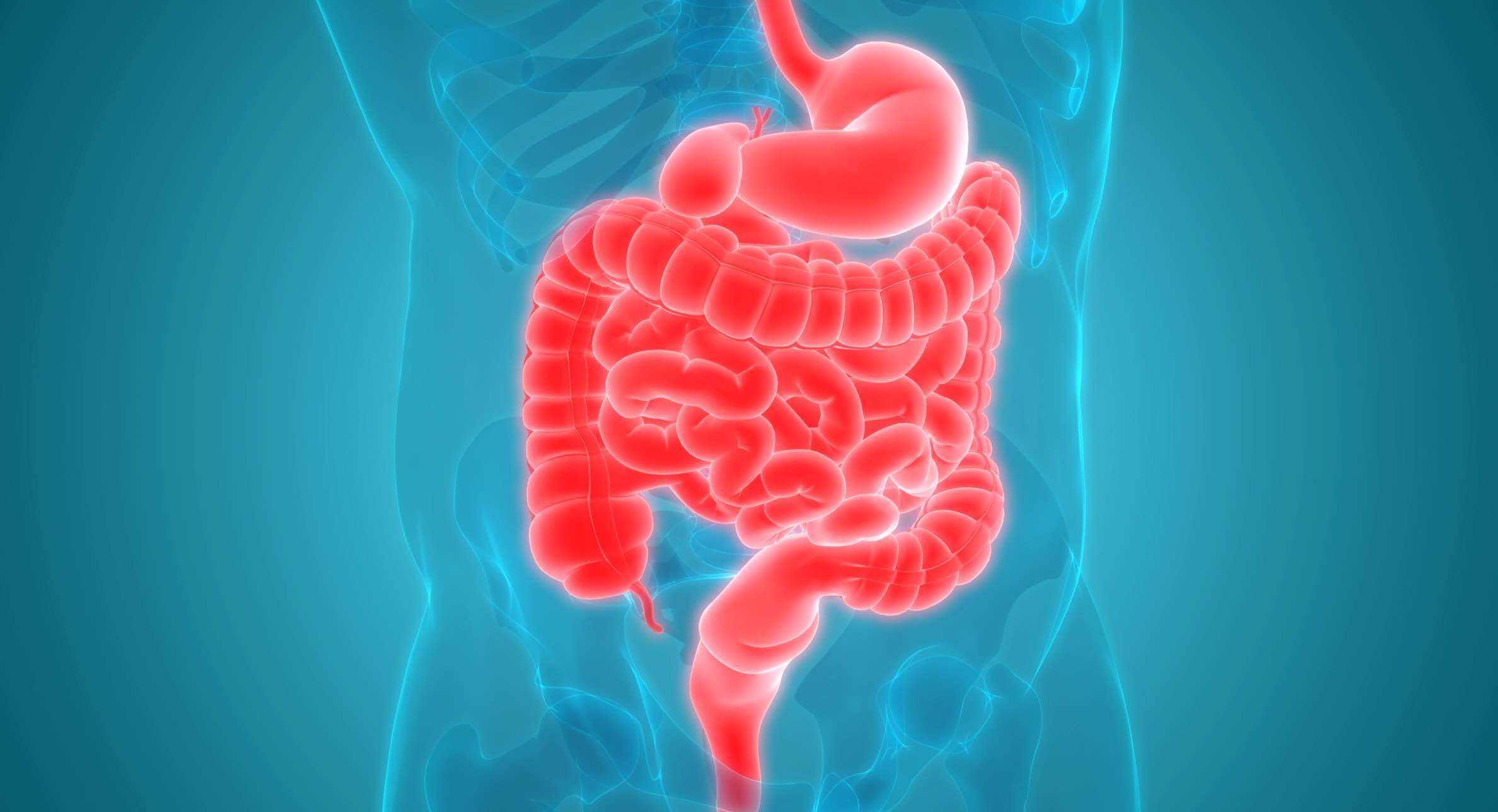
Prof. Dr. med. Mathias Strowski is a scientist and a successful clinician who specializes in gastroenterology, diabetology, and cancer drug therapy. The professor is a member of national and international professional societies (for example, the Berlin and Brandenburg Society for Gastroenterology and Hepatology, the European Association for the Study of Diabetes, and others), and he has repeatedly received awards for his reports in gastroenterology and diabetology.
Prof. Strowski's working principle is to provide each patient with effective and painless treatment. He focuses on minimally invasive endoscopic procedures that can be part of a preventive examination or treatment process.
Prof. Strowski treats patients at the Hospital Frankfurt (Oder). He is the Head of the Department of Gastroenterology, Hepatology, Nephrology and Infectology. In the interview, the professor talks about the symptoms of gastrointestinal diseases, optimal preventive examinations, and the possibilities of German medicine in the field of cancer treatment.
Good afternoon, Prof. Strowski! Thank you for taking the time to give us an interview today!
I am a professor. I am a general practitioner and specialize in gastroenterology. I also have additional qualifications in diabetology and cancer drug therapy.
I have over 25 years of successful clinical experience. I worked at the Charite University Hospital in Berlin for 13 years. After that, I worked in two other hospitals. I am currently working at the Hospital Frankfurt (Oder).
Prof. Strowski, how many patients from abroad do you admit for examination and treatment each year?
I admit about 30-60 patients per year.
From which countries do patients most often come?
Most patients come from Arab countries. Another large group of patients comes from countries in Southeastern Europe. Patients from Eurasia also come. We also admit patients from Scandinavian countries. We even had patients from North America, but these were sporadic cases.
Prof. Strowski, what are the diagnoses with which patients most often come to you?
Most patients come to us with a preliminary diagnosis or simply with complaints. If patients have an already established diagnosis, these are mostly gastrointestinal diseases, i.e., pancreatic, gallbladder, and liver pathologies. We also treat patients with diabetes mellitus and cancer.
Why, in your opinion, do patients choose treatment in Germany? What are the benefits of German medicine compared to other EU countries?
Medicine in Germany is at a very advanced level. In this country, patients benefit from the latest treatment methods. Given the top-class quality of medical care in Germany, the cost is relatively affordable when compared to treatment prices in Japan or the USA. In addition, the healthcare system in Germany is very well structured. Hospitals have all the necessary resources to provide effective treatment in the shortest possible time and at an affordable price.
In addition, Germany pays special attention to protecting the confidentiality of the personal data of each patient.
It goes without saying that Germany is also attractive in terms of tourism. The country offers many picturesque places as well as cultural and historical sights that contribute to a special interest in Germany.
Germany thus attracts patients with top-class medical care. And what is more, patients can combine their treatment with relaxation.
Prof. Strowski, do you think there are differences in the treatment of patients in Germany and other countries?
Treatment in Germany is done using high-tech equipment. The German healthcare system provides hospitals with such equipment. This is an advantage for patients, including in terms of treatment costs. The duration of hospital stays is relatively short: after undergoing both diagnostics and treatment, patients are quickly discharged from the hospital.
In addition, most doctors are fluent in English and have experience working at medical facilities abroad. Thanks to this, the specialists can successfully communicate with representatives of various cultures and religions.
Have there been cases in your clinical practice where a patient was misdiagnosed and ineffectively treated for a long time?
It is important to note that each country has treatment standards. It is obvious that developed countries have the highest standards. When patients come to us from countries where treatment standards differ from the European ones, and in particular from the German ones, doctors typically provide treatment in accordance with the clinical protocols approved in Germany because it is important for them to achieve the desired result.
Of course, many patients who have received the wrong treatment in their native country come to me. There are also patients who, while being treated with certain medications, developed side effects that worsened their condition. It is extremely important to find out which medicines a patient has taken and conduct the necessary instrumental examinations to make an accurate diagnosis. Only after that can effective treatment be prescribed.
In most cases, endoscopic interventions on the organs of the digestive system may cause anxiety in patients. How do you manage to perform painless endoscopic procedures?
It is always necessary to speak with each patient individually, informing them about the possible risks and benefits of a specific procedure. Some endoscopic procedures are relatively simple and can be performed under local anesthesia. We also perform quite complex endoscopic manipulations under general anesthesia. Anesthesiologists are responsible for anesthesia.
At German hospitals, most endoscopic procedures for gastrointestinal pathologies are performed under sedation. A patient is in a state of deep sleep and does not experience any pain. I support such an approach so that each of my patients does not experience any pain. Sometimes it is possible to provide anesthesia with the help of fast-acting drugs, either pills or intravenous injections.
My principle in providing medical care is to offer each patient painless treatment.
Prof. Strowski, what complaints from the gastrointestinal tract should alert patients and make them see a doctor?
First of all, such complaints include unexplained weight loss and anemia. Noticing blood in the stool or urine should also be alarming. In addition, a patient needs to see a doctor if unexplained abdominal pain occurs. Patients with diabetes mellitus should pay particular attention to the above complaints. In this group of patients, there is a high risk of developing pancreatic cancer, so it is necessary to conduct diagnostics to exclude cancer. Unreasonable yellowing of the skin is another alarming sign that requires appropriate examinations.
How often do patients need cancer prevention screening?
Patients are advised to undergo cancer prevention screening once a year.
There are patients with a higher risk of developing gastrointestinal cancer. For example, these are patients with malignant diseases in their family history. Such patients undergo cancer prevention screening more often, once every three months. Sometimes it is enough for them to have screenings once every six months.
The frequency of cancer prevention screening therefore depends on the patient's individual risk level.
Prof. Strowski, what kind of diagnostic procedures should be included in cancer prevention screening?
First and foremost, it is necessary to collect a detailed medical history and conduct a physical examination. It goes without saying that screening involves comprehensive laboratory diagnostics, including blood and urine tests. Imaging methods are also used. For example, an ultrasound scan is an informative and affordable imaging test. We also assess pain severity using the McGill Pain Questionnaire. Some patients may undergo a colonoscopy, if clinically indicated.
Depending on the diagnostic results and the patient's risk group, advanced diagnostics may be required. For example, such examinations as gastroscopy, echocardiography, ultrasound scans of the internal organs, and so on, may be conducted. Additional diagnostic procedures can also be performed whenever required.
Why is it so important not to delay seeking medical help? How can this harm the patient's health?
First of all, patients should pay attention to alarming symptoms. The presence of alarming symptoms in patients aged 50-60 years may be indicative of the development of an oncological process. Our task is to detect the disease at an early stage when it is still possible to provide effective treatment. Cancer usually requires surgery. If the disease is detected at an advanced stage, patients receive palliative care for symptom relief.
What advice would you give to patients who are considering a trip to Germany for their treatment but have not made a final decision yet?
I would recommend having a consultation with a chosen German doctor and discussing with him whether the necessary therapy is available in Germany. The consultation helps establish a trusting relationship between the doctor and the patient, which also plays an important role. In addition, the consultation will help the patient determine whether the doctor has sufficient experience and professional skills to provide the necessary treatment.
Prof. Strowski, thank you for the informative interview! I wish you all the best!
Read:
Stomach Cancer Treatment Options in Germany
Treatment of stage 4 stomach cancer in Germany
Stages and clinical course of bowel cancer
Esophageal Cancer: Treatment in Germany
Treatment of stage 4 pancreatic cancer in Germany
Pancreatic Cancer Treatment: Guideline for Treatment Options
Colon Cancer: Full Bowel Cancer Treatments Guide
Stomach Cancer Treatment Guide
Klatskin tumor: treatment of bile duct cancer in Germany
Methods and benefits of gallbladder cancer treatment in German medical practice
Don't know where to start?
Contact Booking Health



